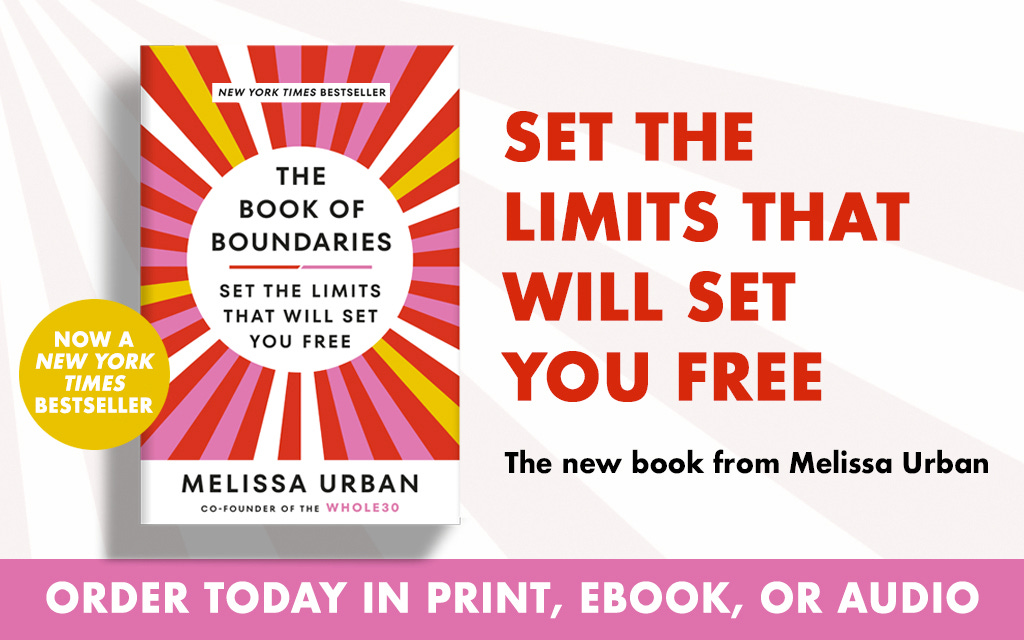WWMUD: Is it a boundary or is it controlling?
How to spot the difference in your own boundary, and in others'
Dear MU, do you think boundaries are ever abusive or controlling? Example: If I needed to talk with someone because they upset me, and they tell me they can’t talk now but “maybe tomorrow” (which feels like they’re totally shutting me down), is that a boundary or are they controlling me? –Manipulated (maybe)
The simple answer is no, a true boundary is never about controlling someone else, and therefore by definition isn’t manipulative or abusive. But that’s not really what you’re asking, so let’s dive deeper.
Boundaries vs. manipulation
Boundaries are guard rails that you set around behaviors, communications, or energetic exchanges in an effort to improve the relationship and/or keep yourself safe and healthy. When setting a boundary, you’re expressing your needs in a clear and direct way. Boundaries are never punitive or controlling—but it’s sometimes not easy to tell the difference between a healthy boundary and an attempt to manipulate or control when you’re on the receiving end.
Using your example, say you ask to have a conversation with someone to tell them how their recent behavior was hurtful. They respond, “I can’t talk today, maybe tomorrow.”
Boundaries are guard rails that you set around behaviors, communications, or energetic exchanges in an effort to improve the relationship and/or keep yourself safe and healthy.
In Scenario A, they recognize that they are still in a heightened emotional state around the situation and are likely to respond in a defensive or angry fashion—and that would hurt the relationship further. So they set a boundary around the timing of the conversation such that they can be in a better emotional space and respond from a place of grace and understanding. (Granted, they could have said it better, but the impact of the boundary will be positive when you finally do talk.)
In Scenario B, they’re mad that you’re mad, and they want to teach you a lesson about calling them out on their hurtful behavior. They choose to blow you off today as a punishment, perhaps thinking if they say no for a few days in a row, you’ll just drop it. “I can’t talk today,” they say, and feel like they “got you back.” This isn’t a boundary, this is manipulation—designed to shut down the relationship, not improve it.
The problem is, they can sound exactly the same.
I assume you want to clarify the difference between a healthy boundary and manipulation not just when you’re on the receiving end, but when you’re the one contemplating the boundary, trying to make sure it’s coming from a good place and effective. Here are some tips for both scenarios.
If you’re setting the boundary
Only the person doing the boundary-setting knows the true nature of their intentions, so if you’re the one contemplating a boundary, ask yourself:
Am I asking for what I need in a clear, direct way?
Will doing this ultimately make the relationship better and provide a safe space for me?
Is this coming from a place of self-awareness and calm, grounded energy?
If the other person respects this boundary, will I feel a sense of gratitude and renewed energy to find a solution?
If any of these answers are no—if you’re not asking for what you need, only telling them what to do; if it’s designed to punish the other person or teach them a lesson; if it feels defensive, impulsive or heated; or if it feels self-righteous or like “winning” when they comply—you’re not setting a boundary, you’re engaged in manipulation.
When you’re receiving someone’s boundary
When you’re on the receiving end of a boundary, however, it’s not as easy to tell where they are coming from, or if they’re even self-aware enough to know the difference. Here are a few thoughts.
First, wait and see, giving them the benefit of the doubt that they’re working in their highest interest. “I respect that you aren’t ready to talk about this right now. I think it’s important for our relationship that we do have the discussion at some point. Can I text you tomorrow to check in?” If you’re able to have a productive conversation tomorrow, then that speaks to the value they place on the relationship, and by respecting their boundary, you’ll have strengthened the relationship on your end too.
If they come back tomorrow (and the next day) saying they still can’t talk, then you may have to take another tact. Perhaps try another avenue for communication, like an email or letter. “I hear that you can’t talk yet. I’d like to share how I’m feeling because I want to preserve this relationship, but I want you to be able to process this in your own time. I’m going to send you an email tonight that you can read when you’re ready.” (Bonus, some people respond better when they have time and space to process privately, and this approach may lead to a more positive engagement.)
Look to patterns
If they don’t respond at all, continue to blow you off, or respond to your feelings with defensiveness or counter-attack, here’s the cold hard truth:
Their response is not your business, and all you can control are your own actions. You are responsible to be conscientious of their feelings, but you’re not responsible FOR their feelings. Did you say what you needed to say in your integrity, phrasing what you needed for the health of the relationship or your own safety in clear and kind terms? Then you did your part. Now they get to respond however they choose, and it’s no longer your business what (if anything) they do with it.
Should you get the feeling based on patterns or observed behaviors that your relationship partner is stuck in manipulating or controlling mode, then perhaps you set parameters around how you choose to interact going forward, to protect yourself. Or maybe you have another honest conversation about how this pattern makes you feel, giving them a shot to self-observe and course-correct. Or, you simply accept that this person isn’t willing or capable of respecting your boundaries, and you’ll adjust the relationship in the best manner for your own self-care.
Whatever you choose, make sure you’re taking action in the best interest of the relationship and your health, and not continuing the cycle of punishing or controlling each other and calling it a “boundary.” I hope this helps you feel more confident than ever in setting and holding healthy boundaries.




